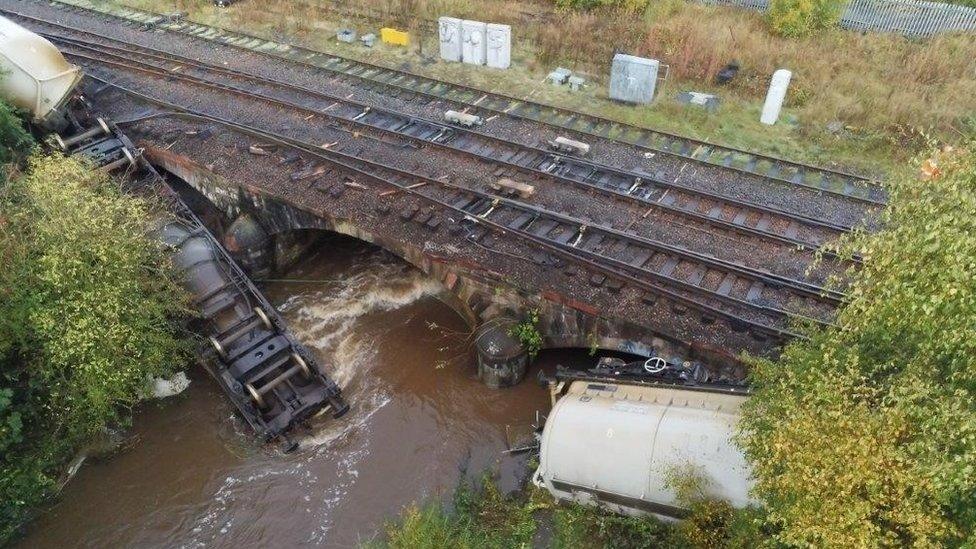Wheel fault caused Carlisle cement train derailment
- Published
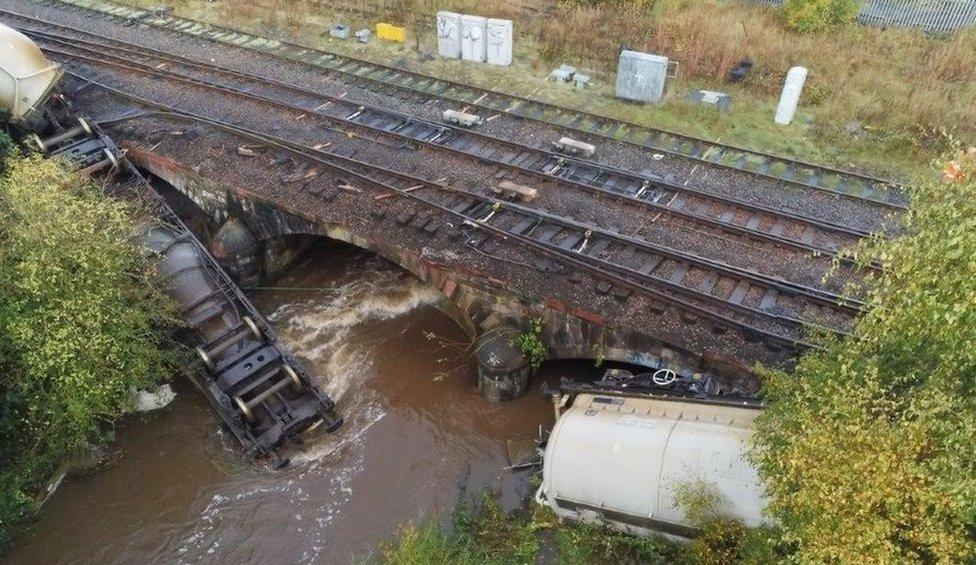
One of the derailed cement wagons went into the River Pettril below the bridge
Faulty wheels caused a freight train to derail which closed two lines for seven weeks, an investigation has found.
Five 100-tonne wagons carrying cement powder came off the track at about 20mph near Carlisle, with two falling from a bridge, on 19 October.
The Rail Accident Investigation Branch (RAIB) said one set of wheels, external on the 14-wagon-long train stopped turning and derailed when it hit a junction.
Investigators have made a number of recommendations to operators.
The train was travelling from Clitheroe in Lancashire to Mossend near Glasgow when it derailed shortly before 20:00 BST near Petteril Bridge junction.
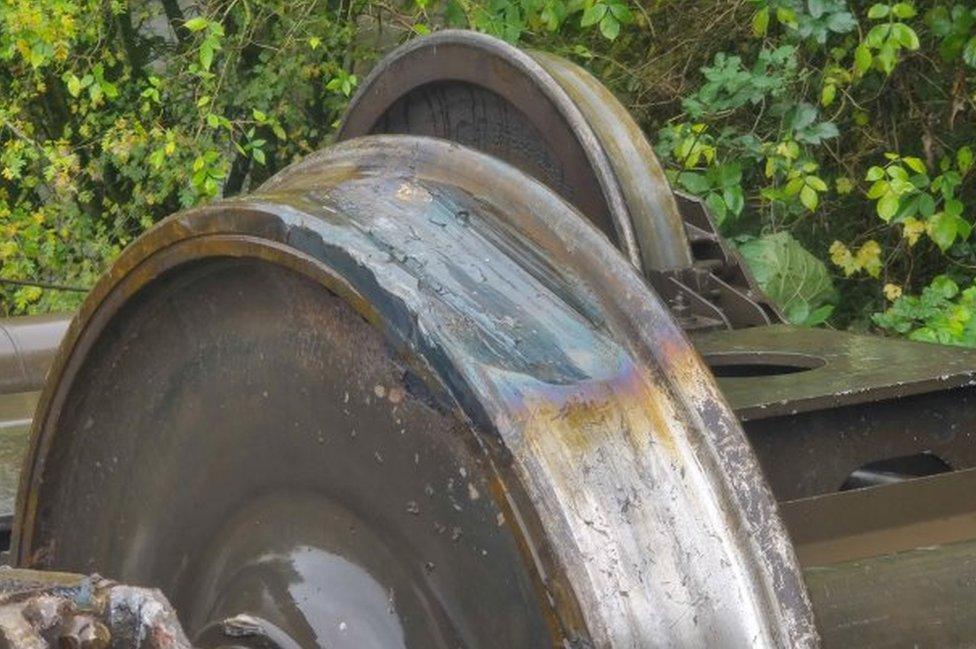
Investigators quickly spotted significant damage on a wheel which had stopped turning
The RAIB said one set of wheels on the ninth wagon had stopped rotating up to 55 miles (88km) before the junction and slid along the top of the rail causing "considerable damage" and an area of flattening to the wheels.
"This meant the wheels were unable to safely negotiate a set of points just before Petteril Bridge Junction, damaging them and causing the ninth wagon to become derailed," investigators said.
Five of the 100 tonne wagons derailed and two fell from the bridge, with the ninth wagon rupturing and landing upside down in the River Petteril "although very little of the cement powder was spilled".
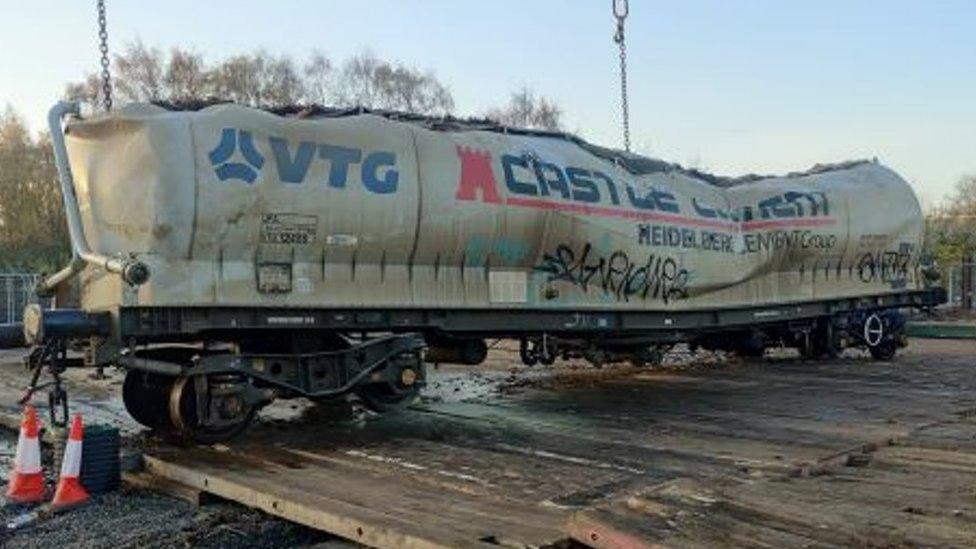
The ninth wagon had to be retrieved from a river
The RAIB said the wheel slide was "probably" the result of the brakes being applied normally in "low adhesion conditions", adding the train was travelling at about 20mph when it derailed.
The faulty wheels had not been spotted by the driver, signal operators or "any engineered system", the RAIB said, adding the wagon had undergone routine maintenance a month before with no defects found.
Recommendations included:
For the railway industry to understand the specific risks to freight trains in low adhesion conditions
For rail firms to review requirements for stopping and examining trains
An improvement in the requirement for drivers to look back along their trains
A reminder for signallers of the circumstances in which they should stop trains for examination
The derailment caused the closure of lines from Carlisle to Newcastle and Settle for almost two months.
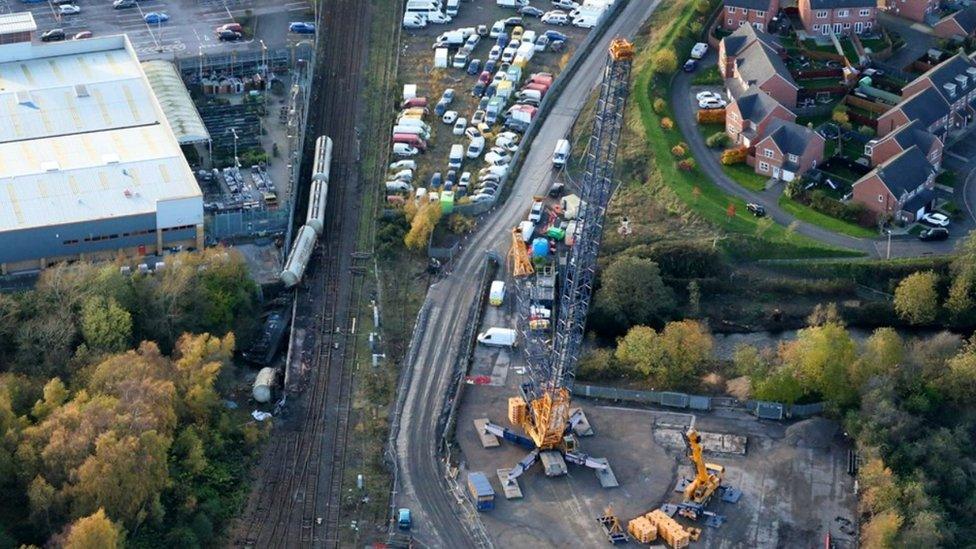
It took three-and-a-half weeks to remove the wagons
It took three-and-a-half weeks for the wagons, each of which weighed about 20 tonnes and were carrying roughly 80 tonnes of cement powder, to be removed due to difficulties getting a crane close enough, with the bridge then requiring "extensive rebuilding work".
A spokesperson for GB Railfreight said: "We welcome the RAIB report into the derailment at Petteril Junction. We will work with Network Rail, RSSB and other industry stakeholders to take forward RAIB's recommendations."
Paul Owen, Network Rail's North West route operations director, said the disruption was "hugely disruptive for passengers and freight travelling between Carlisle and Newcastle, and we'd once again like to thank everyone impacted for their patience".
Wagon owner VTG Rail UK has been contacted for comment.

Follow BBC North East & Cumbria on X (formerly Twitter), external, Facebook, external and Instagram, external. Send your story ideas to northeastandcumbria@bbc.co.uk, external.
- Published7 December 2022
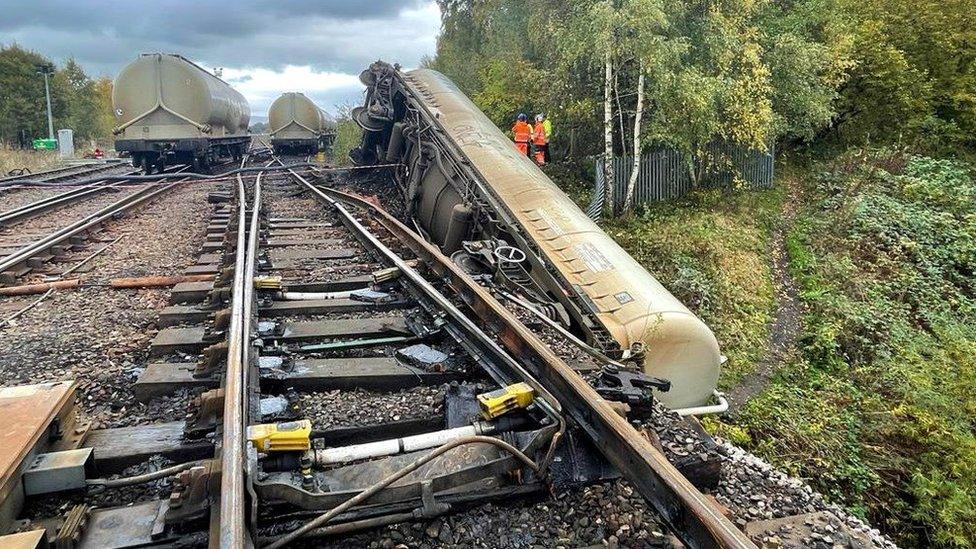
- Published13 November 2022

- Published21 October 2022
